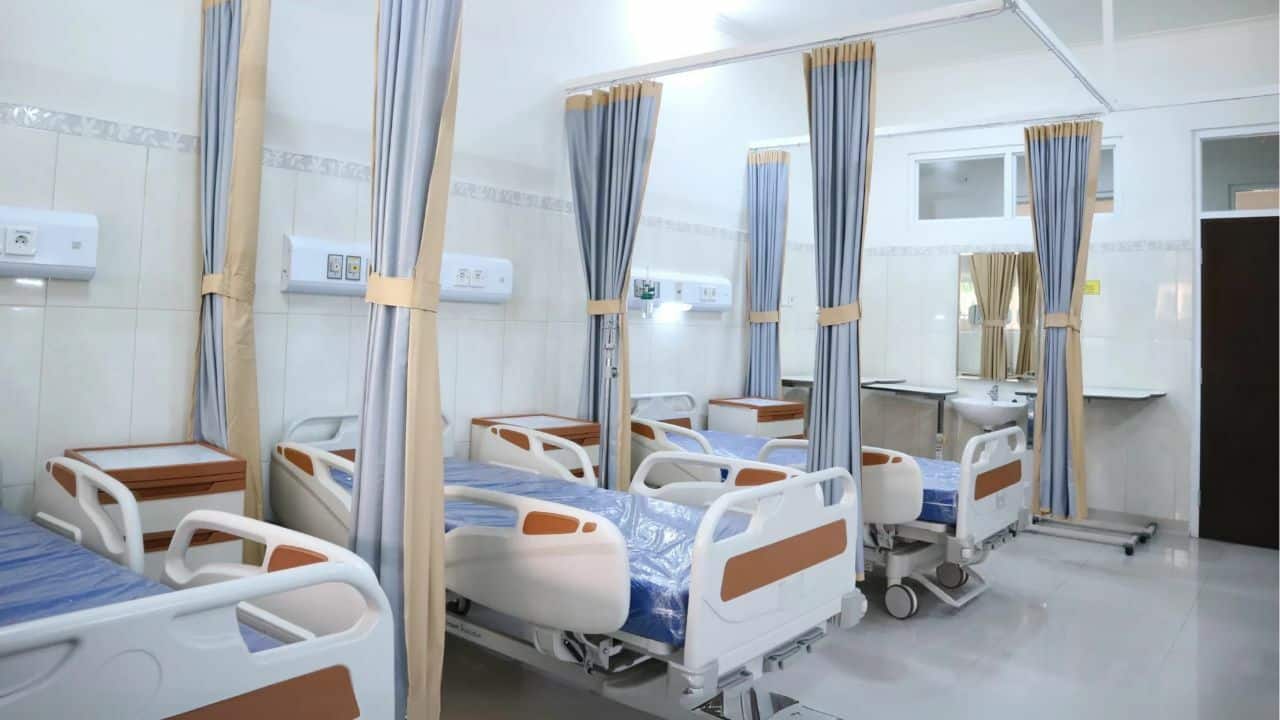Do foreigners get free healthcare in Thailand?
Learn how the system works and why private health insurance is essential for expats

Thailand’s healthcare system is well-regarded across Southeast Asia, with options ranging from public hospitals to world-class private facilities. But when it comes to foreign residents or tourists, healthcare access isn’t as straightforward. So, do foreigners get free healthcare in Thailand? Yes, you do get access to some healthcare for free only if you have a work permit and contribute to Social Security Scheme.
On this page
| Topic | Description |
|---|---|
| Public healthcare system | Public hospitals offer subsidised care for Thai citizens and foreigners with work permits, but foreigners without insurance must pay out-of-pocket. |
| Limitations of public hospitals | Expats face long wait times, language barriers, and limited access to specialists in public hospitals. |
| Can you rely on travel insurance? | Travel insurance is great for emergencies, but doesn’t cover routine care, chronic conditions, or ongoing treatments. |
| Why private health insurance is essential | Private insurance gives access to better healthcare, shorter waits, and English-speaking staff in top private hospitals. |
| Cost of private healthcare | Private care in Thailand is expensive, with consultations ranging from 1,000 to 2,000 baht, and surgeries can cost tens of thousands of baht. |
| Retirees and public healthcare | Retirees on a non-working visa aren’t covered by the public system and need private insurance for healthcare needs. |
| Secure health with Cigna now | Cigna offers comprehensive, customizable insurance for expats, covering everything from emergency care to preventive services and evacuation. |
How the public healthcare system works
Thailand’s public healthcare system is funded by taxes and the government budget. For Thai citizens, this often means free or very low-cost care through public hospitals. The system prioritises universal healthcare, aiming to ensure that no one is left without access to basic medical treatment.
For foreigners, however, the situation is different. You can only access free or subsidised care if you’re part of the social security programme. This programme is linked to formal employment in Thailand. Expats with a work permit contribute to the system through monthly deductions from their salary (usually 5% of income, capped at 750 baht per month).
If you don’t have a work permit or aren’t contributing to social security, public healthcare isn’t free. Instead, you’ll need to pay out-of-pocket. While public hospital rates are lower than private ones, they can still become expensive for surgeries or specialised treatments.
The limitations of public hospitals for expats
Public hospitals in Thailand are generally reliable for basic care, but there are significant downsides for expats. Long waiting times are one of the biggest issues. You might need to spend hours, sometimes an entire day, to see a doctor or get treatment.
Another challenge is communication. English-speaking staff are rare in many public hospitals, especially outside major cities like Bangkok or Chiang Mai. This language barrier can make it difficult to explain your symptoms or understand the doctor’s advice.
Facilities at public hospitals also tend to be more crowded, with less emphasis on comfort and privacy. For expats accustomed to international healthcare standards, this can feel overwhelming. Private facilities offer faster services, English-speaking staff, and advanced medical technology.

Can you rely on travel insurance?
Travel insurance is a good option for tourists or short-term visitors. Most plans cover emergency medical situations, accidents, or sudden illnesses. However, travel insurance often has limitations that make it unsuitable for long-term expats.
It doesn’t cover routine check-ups, vaccinations, or ongoing treatments for chronic conditions. Coverage limits may also leave you paying for a significant portion of major medical expenses. For example, emergency surgery or hospitalisation can easily exceed typical travel insurance caps.
If you’re planning to stay in Thailand long-term, you’ll need a more comprehensive solution.
Stay covered, stay worry-free. Click to get your quote today!
Lock in a 10% lifetime discount on your expat health plan.
T&Cs apply*
Why private health insurance is essential
Private health insurance gives you peace of mind by ensuring access to high-quality medical care whenever you need it. With a private plan, you can visit Thailand’s top private hospitals, which are known for excellent facilities, shorter waiting times, and English-speaking staff.
Private insurance covers a wide range of services, from preventive care like annual check-ups to treatment for serious illnesses. It also lets you choose your preferred doctor and hospital, giving you control over your healthcare experience.
Many insurance providers, including Cigna, offer plans tailored for expats. These plans are flexible and can cover everything from outpatient visits to emergency evacuation, ensuring you’re protected in any situation.
What’s the cost of private healthcare in Thailand?
Thailand’s private hospitals are highly regarded for their quality and efficiency, but they come at a price. A consultation with a specialist in a private hospital can cost anywhere from 1,000 to 2,000 baht (£20–40), while a basic health screening package starts at around 5,000 baht (£100).
More advanced procedures, such as surgeries, can cost tens of thousands of baht. For example, appendectomy costs in private hospitals can range from 70,000 to 100,000 baht (£1,400–2,000).
Without insurance, these costs can add up quickly, especially if you require ongoing treatments or emergency care. This is why having private health insurance is not just a convenience but a necessity for expats in Thailand.

Are retirees covered under public healthcare?
Retirees in Thailand, particularly those on retirement visas, often don’t qualify for the social security programme unless they’re also working. This means they’re excluded from the public healthcare benefits that Thai citizens and employed expats receive.
For retirees, private health insurance becomes even more important. Ageing comes with increased medical needs, including routine screenings and treatments for chronic conditions. Insurance ensures that you can access the care you need without worrying about financial strain.
Why now is the perfect time to secure your health with Cigna
Living in Thailand comes with exciting opportunities, but navigating the healthcare system as an expat can be tricky. What happens if you face a medical emergency or need regular care for a chronic condition? Private health insurance bridges the gap, ensuring you have access to the best care without financial stress.
Cigna’s global health plans are designed with expats in mind. Whether you’re in bustling Bangkok, laid-back Chiang Mai, or a tropical paradise like Phuket, you’ll have access to world-class private hospitals and clinics. With comprehensive coverage for everything from routine check-ups to emergency medical care, you’re always in safe hands.
Here are some key benefits of Cigna plans for expats:
- Inpatient care: Up to $1,000,000 per year for hospital stays
- Outpatient visits: Up to $25,000 annually for doctor consultations
- Chronic condition support: Full coverage for ongoing treatment of chronic illnesses
- Emergency evacuation: Covered 100% worldwide for life-threatening situations
- Preventive care: Includes check-ups, screenings, and vaccinations
- Customisable add-ons: Dental, vision, and maternity care can be added
Waiting for the right time? Here’s a tip: don’t wait too long. Insurance rates often increase with the new year as policies are updated. That means locking in your coverage now could save you money in 2025. Your health deserves the best. Try a free quote now!
Lock in a 10% lifetime discount on your expat health plan before the time ends.
T&Cs apply*
*Cigna Healthcare reserves the right to amend or withdraw a promotion at any time without notice. This discount will apply for the lifetime of the policy and is only eligible to new Cigna Global Individual customers. The discount may only be applied by a sales agent and cannot be applied in conjunction with any other offer, except the 10% discount given to policies paid annually in full. If you choose to pay your policy annually in full, your 10% discount will be applied after the 10% annual discount has been applied. Only Cigna Global Individual Policies are eligible for the 10% discount. A minimum purchase value of $2000 for policies based in Europe is applicable. Policies based in the rest of the world require a minimum purchase value of $3000 to be eligible.
Latest Thailand News
Follow The Thaiger on Google News:


























